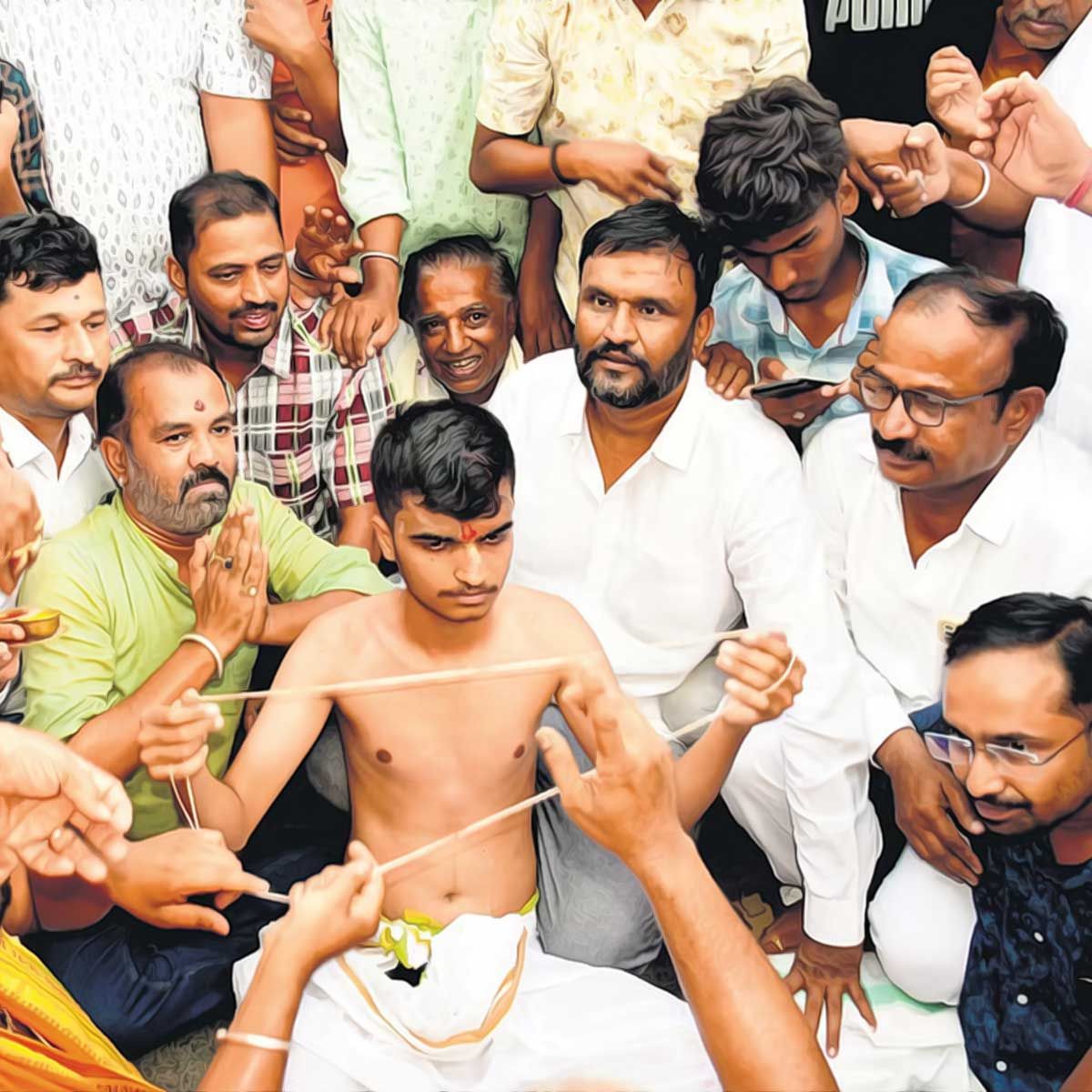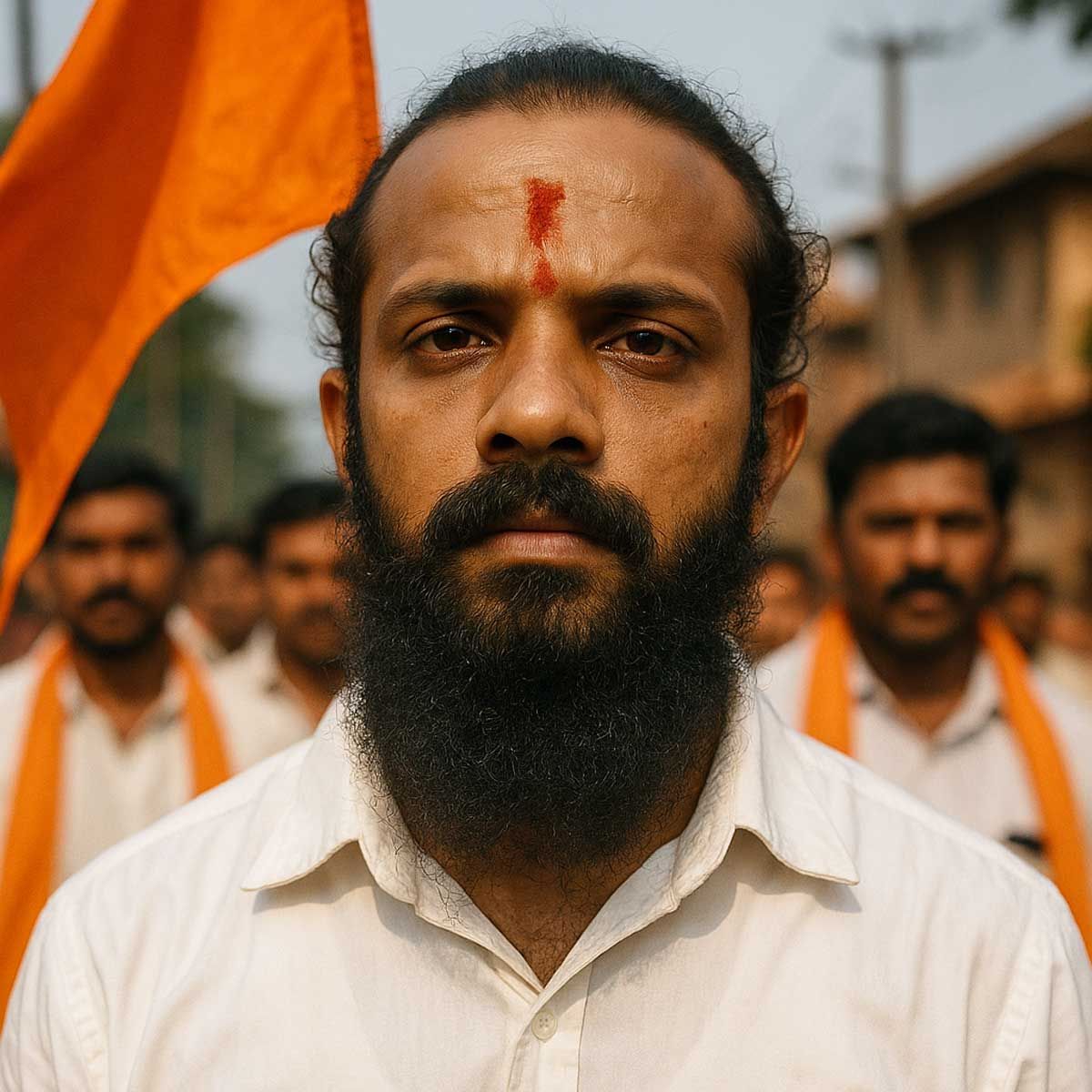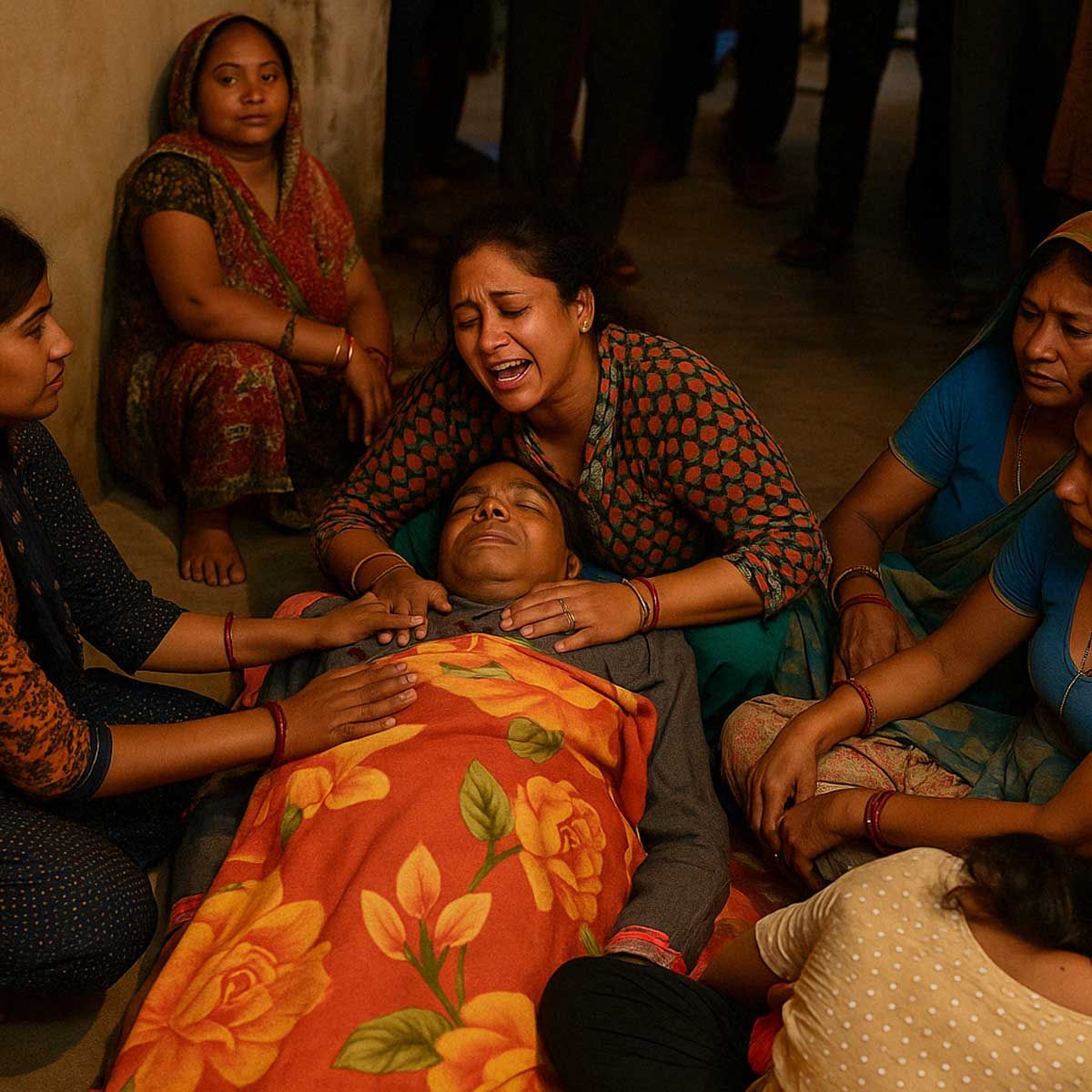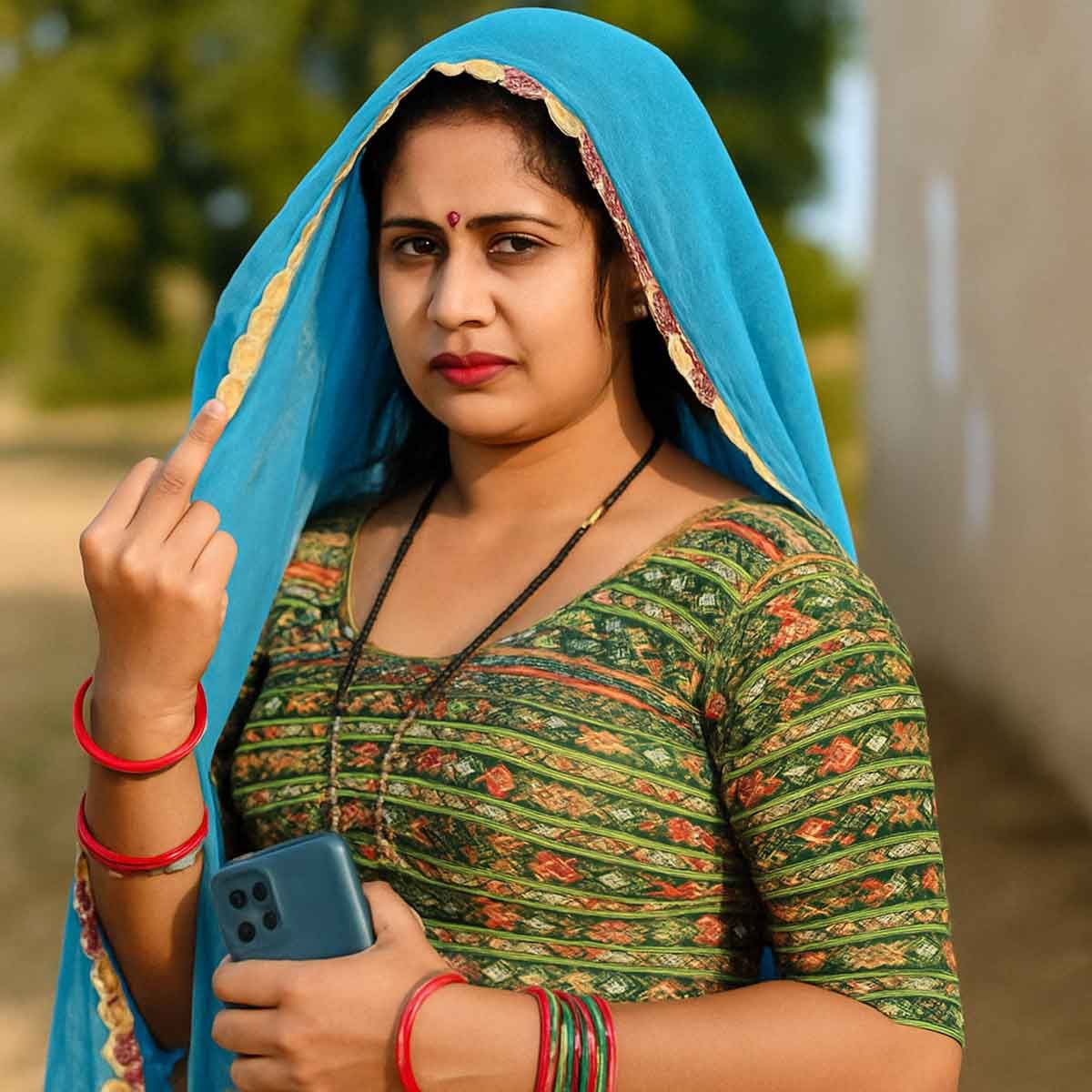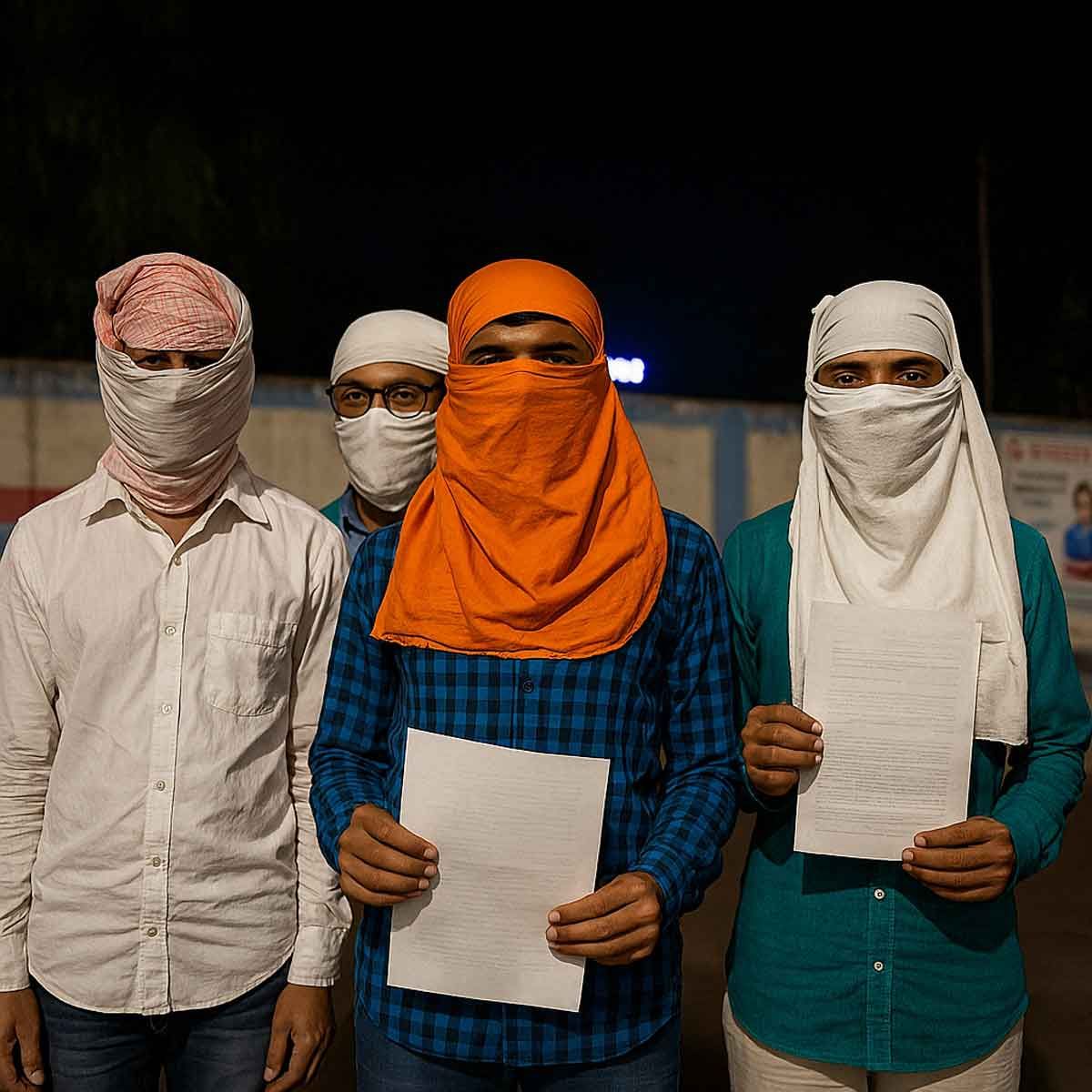More Coverage
Twitter Coverage
Satyaagrah
Written on
Satyaagrah
Written on
Satyaagrah
Written on
Satyaagrah
Written on
Satyaagrah
Written on
JOIN SATYAAGRAH SOCIAL MEDIA
Rahul Gandhi's 'Dancing Aishwarya Rai' remark, intended as media critique, backfires, revealing his bias against independent women, revealing a deep-seated disdain for those who dare to navigate outside his conventional political and ideological lanes

In the bustling world of Indian politics, where every word echoes louder in the corridors of social media, Congress leader Rahul Gandhi has managed to stir the pot yet again. As he marches on with his Bharat Jodo Nyay Yatra, a journey aimed at uniting the nation through justice, his speeches have become the daily bread for viral content enthusiasts. His method? A curious blend of random anecdotes and celebrity mentions that more often than not, lands him in hot water. This time, the ripple was caused by none other than the mention of Aishwarya Rai Bachchan, a name synonymous with grace and beauty on both national and international platforms.
Rahul Gandhi, perhaps in an attempt to critique the media's focus and its allegiances, brought up Aishwarya Rai's name in a manner that many found to be in poor taste. His point was to highlight the media's obsession with glamour and entertainment over pressing societal issues. But in doing so, he inadvertently stepped into the murky waters of objectification, a move that was neither smart nor sensitive. It's almost as if he thought, "Let's throw in a dash of Bollywood to spice things up," not realizing that he was cooking a recipe for controversy.
The context of his remark was a critique of the media landscape in India, which he perceives to be heavily biased. Gandhi asserted, "These media houses belong to Adani and Ambani. The farmer, the labourer, and the impoverished will never be featured on their shows. Their owners say no, so they can’t do it. They can’t present India’s underprivileged in the media. The media promotes Narendra Modi throughout the day. Then sometimes Aishwarya Rai will be seen dancing following which Amitabh Bachchan will come out showcasing his moves the next second.” This statement aimed to paint a picture of a media that prioritizes sensationalism and celebrity coverage over the real issues faced by the common man. However, the inclusion of Aishwarya Rai's name, used as a metaphor for frivolous content, inadvertently demeaned a self-made woman who has not only represented India on numerous global platforms but has also been a beacon of empowerment.
The irony is palpable. Rahul Gandhi, a bachelor who often becomes the butt of jokes for his marital status, found it convenient to use Aishwarya Rai Bachchan's image in a light-hearted jab at the media and the political landscape. This satirical approach, however, backfires as it not only objectifies a respected figure in Indian cinema but also overlooks the achievements of a woman who has carved a niche for herself through sheer talent and hard work.
The underlying issue here is not just about a misplaced remark; it's about the continuous pattern of objectifying women, reducing them to mere elements of entertainment.
— Times Algebra (@TimesAlgebraIND) February 22, 2024 |
|
Rahul Gandhi’s remark was an attempt to express his disdain for the participants in the Ram Mandir Pran Pratishtha programme. His choice to mention Aishwarya Rai, who had no connection to the event, is puzzling, to say the least. It begs the question: why involve a respected figure like Aishwarya Rai in a political critique, especially when she was neither a participant nor an attendee? This move by Gandhi, who should arguably be employing a more mature and respectful discourse at his age, has been interpreted as a low blow, reducing a celebrated individual's identity to a mere talking point in political sparring.
The incident sheds light on a broader, more disturbing trend in Indian politics where female artists are frequently mentioned in ways that do not honor their contributions or respect their dignity. This is not an isolated incident; the political arena has witnessed similar cases where women's names are invoked inappropriately. The recent uproar involving Tamil Nadu leader AV Raju and actress Trisha is a case in point. Raju's claim that Trisha was paid a substantial sum to entertain at a resort, and his subsequent apology after the actress's threat of legal action, is a stark reminder of how women's identities are mishandled in the public discourse.
“Actress Trisha was paid 25 lakh rupees to come to the resort — a Tamil Nadu leader issued an apology for the objectionable statement”, highlights not only the casual misogyny that plagues certain political circles but also the courage of women like Trisha who stand up against such defamation. This incident, while resolved through an apology, leaves a lingering question about the persistence of such demeaning attitudes towards women in the spheres of politics and entertainment.
The recurring theme of using women's names and achievements as fodder for political commentary or personal attacks raises serious concerns. It underlines a pressing need for a shift in how women are perceived and spoken about in public life. The dialogue surrounding Rahul Gandhi's comments and the incident involving Trisha and AV Raju points to a societal and political imperative: the need for a more respectful, dignified approach to discussing women, irrespective of their profession or public status.
As the dust settles on these controversies, the conversation must evolve beyond mere apologies and temporary outrage. It calls for a sustained commitment to changing the narrative, ensuring that respect for women's autonomy, achievements, and dignity becomes an unwavering standard, not an afterthought in the political lexicon. The hope remains that this will not only end the cycle of objectification but also pave the way for a more inclusive and respectful political discourse.
|
|
Samajwadi Party Leader Azam Khan’s Statement on Actress Jaya Prada’s Underwear
In a startling display of political discourse, Samajwadi Party MP Azam Khan, in 2019, ventured into territory far removed from the decorum expected of public figures. At a rally in Shahabad, Khan decided to critique his political adversary, former Parliamentarian and Bharatiya Janata Party candidate Jaya Prada, in a manner that left many aghast. “It took you 17 years to understand her reality,” he proclaimed, a jab at the electorate or perhaps the political fraternity for their long-standing association with Prada. But Khan didn’t stop there; he escalated the situation by adding, “It took me 17 days to realize that the underwear she wears is khaki in colour.” This remark not only crossed the line of personal decency but plummeted into a deep chasm of vulgarity, sparking widespread condemnation.
This incident sheds light on a larger, unsettling trend in Indian politics where the boundaries of personal attack seem to blur with alarming frequency. Khan’s comment, supposedly aimed at drawing a parallel with the ideological color often associated with a rival political party, instead became an infamous example of how low political rhetoric can stoop. The satire in this scenario is dark, highlighting a grave misstep in political judgment, where the attempt to score political points overshadows any semblance of respect or decency.
Jaya Prada’s Convoy is on the Way, and Evenings of Rampur Will be Colourful Now — Samajwadi Party Leader Firoz Khan
Following in the unfortunate footsteps of his party colleague, Firoz Khan, another Samajwadi Party leader, made remarks about Jaya Prada that were in poor taste. Recounting an episode where Jaya Prada’s convoy supposedly caused a traffic jam, Khan's narrative took a turn towards the absurd. He mused about the actress clearing traffic with a dance, a comment dripping with insinuation and disrespect. “Jaya Prada’s convoy is on the way, and evenings of Rampur will be colourful now,” he remarked, insinuating a spectacle rather than a political campaign.
Khan’s comments, under the guise of political banter, underscore a disturbing trend where female politicians and public figures are subjected to comments that trivialize their contributions and reduce their public personas to objects of entertainment. This brand of satire, though intended to be light-hearted, reveals a deeper, more problematic attitude towards women in the political arena.
Roads Like Actress Hema Malini’s Cheeks
In a somewhat lighter yet equally peculiar turn of events, Congress leader and then-minister in the Kamal Nath government of Madhya Pradesh, PC Sharma, drew an unusual comparison between the state of Bhopal's roads and the cheeks of actress Hema Malini. After observing the poor condition of the roads, filled with potholes, Sharma promised a swift transformation, boasting, “The road will be gleaming in 15 to 20 days and will resemble Hema Malini’s cheeks.”
This statement, while seemingly flattering on the surface, is a stark illustration of how the attributes of female celebrities are casually used as benchmarks or metaphors in political speech. Sharma’s assurance, meant to convey a commitment to infrastructure improvement, instead veers into the territory of casual sexism, where a woman’s physical appearance becomes a yardstick for public projects' success or failure.
These incidents, spanning parties and ideologies, reflect a broader issue within Indian political discourse. The ease with which personal attacks, objectification, and casual sexism are wielded as tools in political rivalry not only detracts from the substantive issues at hand but also perpetuates a culture that undermines respect and equality. The satire in these scenarios, dark and reflective, serves as a mirror to the often uncomfortable realities of political rhetoric, urging a reevaluation of the language and metaphors used in the public sphere.
Movie Actresses Also Have Families
The recent unsettling trend of politicians making disrespectful remarks about prominent actresses like Aishwarya Rai, Hema Malini, Jaya Prada, and Trisha Krishnan has sparked outrage and concern. These women, celebrated for their immense contributions to the Indian film industry, have worked tirelessly to carve out successful careers, earning them admiration from both young and old across the nation. Yet, some political leaders seem to misuse their names in public discourse, seemingly oblivious to the offense and discomfort such comments can cause.
The irony is stark when juxtaposed with the public persona of leaders like Rahul Gandhi, who often vocalizes his support for women's respect. "The whole country knows that Rahul Gandhi talks about women’s respect from time to time." However, his selective silence on issues within states governed by his own party raises questions about the sincerity and universality of this advocacy. It's a reflection of a broader political hypocrisy where the dignity promised in manifestos does not extend to all women equally, regardless of their status or profession.
These actresses, who have reached the pinnacle of success through sheer perseverance and dedication, are not mere public figures devoid of personal lives. They are daughters, mothers, and sisters, deserving of the same respect and dignity as any woman. The casual, often derogatory, mention of their names in political rhetoric not only disrespects their personal and professional achievements but also undermines the fundamental principles of respect and equality. "How can their names be tossed around in such a derogatory manner in public?" This question echoes the sentiments of many who find such comments distasteful and unacceptable.
The backlash against these remarks signals a growing awareness and intolerance for such behavior among the public. "Opposition to Rahul Gandhi’s statement today indicates that the people he is attempting to represent are smarter than he is." It's a reminder to political figures that the achievements of women like Aishwarya Rai in their respective fields are of immense value, often surpassing the political gains of those who choose to mention them inappropriately. The public's reaction serves as a call to action for leaders to elevate their discourse, ensuring it is free from bias, disrespect, and objectification.
This collective disapproval not only highlights the need for a more respectful political dialogue but also reinforces the idea that success, irrespective of the field, demands respect. Politicians must remember that their words carry weight and that using women's names as fodder for political agendas or personal attacks does a disservice to the principles of dignity and respect they claim to uphold. As society evolves, so too should the rhetoric of its leaders, reflecting a commitment to equality, respect, and the recognition of each individual's worth and contributions.
 |
 Support Us
Support Us
Satyagraha was born from the heart of our land, with an undying aim to unveil the true essence of Bharat. It seeks to illuminate the hidden tales of our valiant freedom fighters and the rich chronicles that haven't yet sung their complete melody in the mainstream.
While platforms like NDTV and 'The Wire' effortlessly garner funds under the banner of safeguarding democracy, we at Satyagraha walk a different path. Our strength and resonance come from you. In this journey to weave a stronger Bharat, every little contribution amplifies our voice. Let's come together, contribute as you can, and champion the true spirit of our nation.
 |  |  |
| ICICI Bank of Satyaagrah | Razorpay Bank of Satyaagrah | PayPal Bank of Satyaagrah - For International Payments |
If all above doesn't work, then try the LINK below:
Please share the article on other platforms
DISCLAIMER: The author is solely responsible for the views expressed in this article. The author carries the responsibility for citing and/or licensing of images utilized within the text. The website also frequently uses non-commercial images for representational purposes only in line with the article. We are not responsible for the authenticity of such images. If some images have a copyright issue, we request the person/entity to contact us at This email address is being protected from spambots. You need JavaScript enabled to view it. and we will take the necessary actions to resolve the issue.
Related Articles
- "A desperate sequel to the Pegasus fiasco": India's political theater intensifies with MPs like Rahul Gandhi, Tharoor and Mahua Moitra receiving enigmatic cyber threat alerts, catalyzing a government probe in an already charged pre-election atmosphere
- 'Gustaakh-e-Rasool to Gustaakh-e-Rahul, violent fanatics are hitting the road without any gap': National Herald, crooked history of Congress leadership and how desperate politicians making job easier for any foreign forces wanting to destabilise India
- "Poor thing": Sonia Gandhi's remark that President Murmu was 'tired' sparked outrage; BJP demanded apology, while PM Modi praised Murmu's vision with self-reliant defence, Kashmir-Kanyakumari rail, and a 1,000 km metro milestone
- Union Minister G Kishan Reddy hit out at the Gandhi-scion for challenging India’s national unity by referring it to as a “union of states” and not a nation, cites speeches by Dr. Ambedkar
- Congress scion Rahul Gandhi peddled a rumor that the eternal fire of ‘Amar Jawan Jyoti’ that has been burning for over 50 years at the India Gate will be extinguished: Here is why he is wrong
- "Diving deep into the Congress-China connection reveals a web of ties": Jairam Ramesh's Huawei affinity, the Gandhis' MoU with CCP, and closed-door meetings; such undisclosed affiliations raise questions about transparency and India's sovereignty
- "When the ink reveals more than the words": Over 255 prominent Indian citizens wrote to President of India and CJI urging for a thorough inquiry into NewsClick's suspicious funding from Neville Roy Singham, a figure connected to Chinese media machinery
- 'Bete ko set karna hai, damad ko bhent': BJP MP Nishikant Dubey takes jibe at Sonia Gandhi while locking horns with Congress, shedding light on political tensions, Supreme Court decisions, and emerging narratives in the Indian Parliament's monsoon session
- "खटाखट": Amid sweltering heat and mounting disappointments, throngs of hopeful women queue at Bengaluru's GPO and Lucknow's Congress office, lured by the mirage of Rahul Gandhi's grand Rs 8,500 promise—only to find bureaucracy and disillusionment
- Rahul Gandhi states that India is in a horrible position and that a political revolution is required, hints at impending Civil War to bring ‘political change’ in the country: Says ‘India only needs a spark’ on a global platform
- Raj Thackeray roared today at the ‘Uttarsabha rally ‘ while rebutting counter-allegations against him made by Maha-Vikas-Aghadi leaders: He spoke fiercely demanding UCC, unequivocally supported Hindutva, and lashed out at MVA leaders
- Foreign minister S Jaishankar hits back at Rahul Gandhi for talking against Indian government and criticising MEA officials for disagreeing with Europeans, says ‘It is confidence, not arrogance’
- "A symphony of anti-India agendas": Rahul Gandhi's camaraderie with Hindumisic author Christophe Jaffrelot in a recent event stirs controversy; the prolific critic of India, BJP & Indian judiciary, notably participated in 'Dismantling Hindutva' conference
- Brussels Chronicles: Rahul Gandhi started another of his frequent ‘foreign tours’ yesterday, a habitual tryst with anti-India lobbyists, nurturing alliances that threaten to erode India's sovereign narrative. A quest for power, or a misaligned crusade?
- "Who gifted 163-acre Katchatheevu Island to Sri Lanka as a gift, wasn’t that part of Maa Bharati there," PM Narendra Modi tore Congress while replying at the No-Confidence Motion, highlighting DMK and CM Stalin consistent pleas urging its retrieval
















